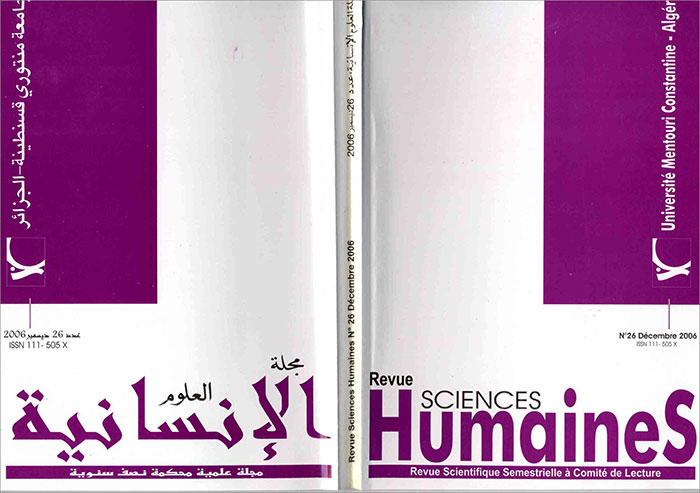The Use of Ultra for the Safe Passage of the Anglo-American Expeditionary Forces to North Africa in 1942
Abstract
In his book The Ultra Secret based on his war recollections the former British Intelligence Service Officer, Frederick W. Winterbotham, revealed that the British cryptanalysts had, during the Second World War, broken the German most secret code used for communications between Berlin and German field commanders. ‘Ultra,’ the information derived from German enciphered messages, was sent out to British field commanders who could, in the light of often detailed information on their enemy’s strategy and tactic, mount their offensive or defensive actions. The British Intelligence Services had, however, remained absolutely silent on this question for about three decades after the war.
The aim of this paper is to try to portray Ultra and the role it played in the mounting of the Anglo-American landings inNorth AfricaonNovember 8, 1942.
Three particular points will retain my attention. First, the historical background through which I will try to shed light on the contribution of the Poles and the French to the breaking of the early signals of the German Enigma machine; second, the British breakthrough; and finally the use of Ultra in the Anglo-American landings in North Africa and why it was kept in the dark for so long.
Downloads
References
- Hastings M. “Bletchley’s Victory” The Spectator, 12 May, 1984, p.21
- According to D. Khan, “Le rôle du décryptage et du renseignement chez les Alliés” revue d’histoire de la deuxième guerre mondiale No. 111, Presses Universitaire de France Juillet 1980, p. 75. The German Army adopted Enigma on July 5th 1928, not in 1929 as F.H. Hinsley put it.
- Professor F. Hinsley, himself a former British Intelligence Officer, provides a good account on what has been written by the Poles, French and the British on their contribution to the breaking of the German Enigma machine in Vol. 1, app. I of his British Intelligence in the Second World War.
- Stefan Korbinski, “The True Story of Enigma,” East European Quarterly, Vol. XI, No.2, Summer, 1977.
-Gustave Bertrand, Enigma ou la plus grande énigme de la guerre 1939-45, Plon 1973 p. 29
- ‘Bomba’ as the Poles considered ‘Bomba’ as the forerunner of the computer, others saw it as a mere electromechanical device.
- Hinsley, op. cit.pp. 489-90.
- Peter Calvocoressi, Top Secret Ultra Cassel, London, 1980, p. 37.
- Pain, Lauran British Intelligence Service, R. Hale, London, 1979, p. 142.
- Hinsley op. cit. Vol. 11, p. 476
It should be, however, noted that CAB 86/90399, para. C. p. 6, states that Germany “made no attempt at special aerial reconnaissance of the Clyde and Mersey when shipping was concentrating.” This was considered as one of the most remarkable features of the naval expedition.
- John C. Masterman, Double Cross System in the War of 1939-1945, Yale University
Press, New Haven and London, 1972, p.109.
- S.W. Roskill, The War at Sea, Vol. II, H.M.S.O. London, 1956, p. 317.
- Hinsley, op. cit. Vol. II, p. 479. (CAB 121/479 folio229A)
- ADM 223/105 Ultra Signals, 1020/28 October , 2217/5.
- ADM 223/105 Ultra Signals, No. F 1519 3 November 1942.
- Ministry of Defence, Battle Summery Invasion of North Africa, No. 38, 1948.
- http:www.cl.cam.ac.uk/reseatch/security/Historical/hinsley.html: The reader can consult the talk given on 19th October 1993 at Babbage Lecture Theatre, Computer Laboratory by Sir Harry Hinsley, a distinguished historian who during the Second World War worked at Bletchley Park where much of the British code-breaking was taking place. In this talk, Sir H. Hinsley - with whom I had had the privilege of corresponding on Ultra when I was doing my Ph.D at the University of Reading - speaks of the influence of Ultra in the Second World War.












